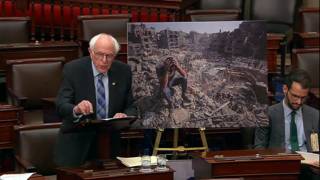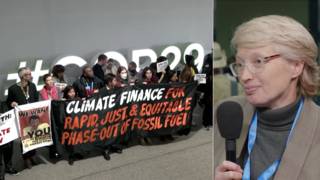HeadlinesJuly 18, 2012
Syria: Suicide Attack Kills Defense Minister, Assad’s Brother-in-Law
A suicide bomber has struck a meeting of top Syrian officials in Damascus, killing several people and dealing a major blow to the regime of President Basher al-Assad. Syria’s defense minister, General Daoud Rajha, was killed along with his deputy — Assad’s brother-in-law, Assef Shawkat. Syria’s interior minister and the head of the country’s national security office have also been reported critically wounded and possibly dead.
Stalemate Continues over New U.N. Security Council Measure on Syria
The bombing follows days of clashes between government forces and rebels around Damascus and comes as the United Nations Security Council is set to vote today on a new measure responding to the overall crisis. Talks with Russia have faltered over whether to include a reference to Chapter VII of the U.N. Charter, which could ultimately pave the way for military force. Amidst the worsened fighting, John Ging of the U.N.’s Office for the Coordination of Humanitarian Affairs issued a new appeal for aid.
John Ging: “We face a lot of obstacles in the efforts to meet the needs of the people. We face tremendous political obstruction from the government of Syria. We face an incredibly dangerous operational environment because of the conflict itself. And we face capacity issues among the organizations who are trying to scale up physically from no humanitarian or very little humanitarian operations to a massive humanitarian operation. We need more money. If we don’t get more money, people will die, and there will be more humanitarian suffering.”
Taliban Bombing Destroys 22 NATO Supply Trucks in Afghanistan
In Afghanistan, a Taliban bombing has destroyed 22 trucks carrying supplies for the U.S.-led NATO occupation. The fuel trucks and supply vehicles were parked in northern Samangan province when a magnetic bomb blew them apart. Truck crossings recently resumed from Pakistan after the United States apologized for an air strike that killed 24 Pakistani soldiers last year.
HSBC Exec Resigns After Report Linking Bank to Drug Cartel Laundering
A top executive at the banking giant HSBC has resigned in the wake of a report linking the firm to money laundering for Mexican drug cartels. A Senate probe also found loose protections at HSBC’s U.S. unit provided a “gateway for terrorists to gain access to U.S. dollars and the U.S. financial system.” On Tuesday, David Bagley, the head of compliance at HSBC, announced his resignation and apologized in testimony before a Senate hearing.
David Bagley: “I recognize that there have been some significant areas of failure. I have said before, and I will say again, despite the best efforts and intentions of many dedicated professionals, HSBC has fallen short of our own expectations and the expectations of our regulators. This is something that a bank seeking to conduct business in the United States and globally must acknowledge, learn from and, most importantly, take steps to avoid in future.”
The Justice Department has confirmed it is investigating HSBC for criminal wrongdoing. Also speaking on Tuesday, Michigan Democratic Senator Carl Levin noted that the alleged improprieties at HSBC have been ongoing for years.
Sen. Carl Levin: “The recent commitments are welcome. Apologies and commitments to improve are also welcome. But accountability for past conduct is essential, and that’s what’s been missing here.”
The report on HSBC comes amidst widespread scandals in the global financial sector, including news the British bank Barclays manipulated the key global interest rate, Libor.
Bernanke: U.S. Was Aware of Libor Manipulation; Fed Could Tackle Unemployment
Appearing before the Senate Banking Committee, Federal Reserve Chair Ben Bernanke acknowledged U.S. officials were aware of the rate manipulation as early as four years ago but were powerless to take action beyond alerting British officials. Bernanke said the Libor scandal has caused major damage and showed the international rate exchange is “structurally flawed.” Addressing the sluggish pace of U.S. job growth, Bernanke also said the Fed is prepared to take new action to address high unemployment.
Ben Bernanke: “Reflecting its concerns about the slow pace of progress in reducing unemployment and the downside risks to the economic outlook, the committee made clear at its June meeting that it is prepared to take further action, as appropriate, to promote a stronger economic recovery and sustained improvement in labor market conditions in a context of price stability.”
Report: U.S. Building Missile Site in Qatar
The Wall Street Journal has revealed the United States is building a new so-called “missile defense” radar station in Qatar. The Pentagon-run site will come as part of a regional U.S. system to defend what one official called “a wide range of U.S. security interests” in the Persian Gulf. Critics have called the missile defense system an offensive weapon against Iran.
Nigeria Seeks Record Fine for Shell Oil Spill
The Nigerian government has ordered the oil giant Shell to pay a record $5 billion fine for a major offshore oil spill last year. The spill at the Bonga oilfield leaked an estimated 40,000 barrels of oil into the sea, threatening local wildlife and massive pollution along the Nigerian coast. The spill came just four months after the United Nations said it would take 30 years and around $1 billion for a small section of the Niger Delta to recover from environmental damage caused by Shell and other companies. Shell says the new fine has “no basis.”
Activists Begin Week of Action Against Shell’s Arctic Drilling
Environmental groups have kicked off a global week of action against Shell’s looming oil drilling operation in the Alaskan Arctic. Shell is set to begin exploratory drilling in the Beaufort and Chukchi Seas later this summer. Activists across the world have begun holding protests at Shell sites in a bid to stop the drilling, forcing dozens to temporarily shut down. At a Shell gas station in London, activists managed to place an animatronic polar bear on the station’s roof.
Sara Ayech: “Shell are going to be the first big oil company, this summer, to start drilling for oil in the Arctic. The Arctic is a unique and beautiful area of the planet. And to drill for oil there would endanger the wildlife, the habitat of polar bears and narwhals and other creatures — as well as the four million people who live there. People all over the world are taking action like this and hoping that Shell will listen and hoping that Shell will make a decision not to go and drill for oil in the Arctic.”
U.N. Official Calls on Georgia, Texas to Halt Executions of 2 Mentally Disabled Men
A U.N. human rights investigator is calling on the United States to halt the executions of two mentally disabled death row prisoners in Georgia and Texas. The prisoners, Warren Hill and Yokamon Hearn, were each found guilty of murder and sentenced to die despite concerns they may have disabilities. Christof Heyns, the U.N. special rapporteur on executions, called for the two men’s sentences to be commuted, saying the killings would violate the Supreme Court’s ruling against executing people with mental disabilities. Yokamon Hearn has reportedly been diagnosed with fetal alcohol syndrome and has a history of mental health problems. He is scheduled to be executed in Texas tonight.
Planned Parenthood Sues Arizona over Funding Ban
Planned Parenthood has filed suit seeking to block a new state law in Arizona blocking funding for abortion providers. Set to take effect in early August, the law bans the use of public funds by state or local government to contract with any organization that provides abortions as one of its services. Planned Parenthood of Arizona says the ban targets their organization, which provides cancer screenings and well-woman exams in addition to abortions.
U.S. Media Granting Politicians Final Say on Attribution, Quotations
A New York Times reporter has revealed the Obama and Romney campaigns are exerting major influence on the media by demanding editing power over quotes used in stories. In a front-page article, Jeremy Peters said journalists are largely acquiescing to demands by politicians and their advisers by allowing them to approve quotes before publication. Peters noted a White House practice of holding so-called “deep-background briefings” where reporters can paraphrase senior Obama administration officials but cannot identify them or quote what they say. He described how quotes collected from campaign officials and sent to them for approval before publication are often “redacted, stripped of colorful metaphors, colloquial language and anything even mildly provocative.” Peters said it is “difficult to find a news outlet” that has not permitted officials to approve quotes, noting the Washington Post, New York Times, Bloomberg, Reuters and others have all allowed it. Many journalists refused to speak to Peters on the record about the practice.
Houston Janitors’ Strike to Spread Nationwide
Janitors who have been striking against unfair labor practices in Houston, Texas, say they are taking their struggle nationwide with picket lines in eight cities across the country. Janitorial workers in Los Angeles and Denver are expected to show solidarity by refusing to cross the picket lines against cleaning contractors. The strike in Houston is now in its second week after workers making $8.35 an hour say they faced harassment and intimidation when they rejected an offer that would have raised their pay by just 50 cents an hour over five years.
Anti-Apartheid Leader Nelson Mandela Turns 94
Today is Nelson Mandela International Day, as the anti-apartheid leader and former South African president turns 94 years old. The United Nations has backed Mandela’s call for citizens worldwide to do 67 minutes of voluntary work — to represent the 67 years Mandela devoted to South Africa’s political struggle. Ahead of celebrations in South Africa, Mandela’s wife, Graça Machel, said her husband is in good health.
Graça Machel: “He’s doing well after the crisis last year. How could you imagine that he would be so well? But he is — he recovered remarkably well, remarkably well. He’s a man of 94, but he’s fine.”
Most popular
- 1
- 2
- 3
- 4
Non-commercial news needs your support
Please do your part today.











Media Options